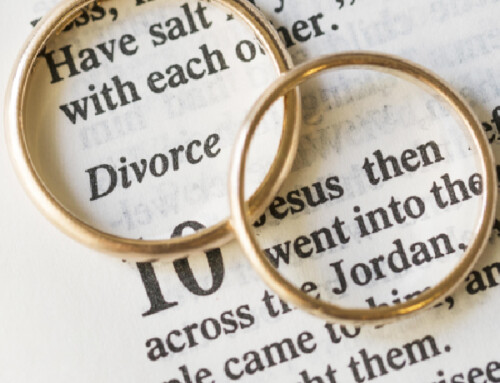We often get asked, ‘What makes a divorce as simple as possible?’ And our answer is always the same. Communication. In all our years as Scottish divorce lawyers we’ve seen countless cases where hassle could have been avoided by simply talking things through.
Mediation is the key to communication. It allows you and your spouse to sort out difficult issues without revisiting old arguments or getting off topic. Beverley Johnson is one of Edinburgh’s leading authorities on Scottish divorce. With our help you can gain a better understanding of the law and decide if mediation is right for you.
What is a mediator?
A mediator, or Family Mediator as they are often known in divorce cases, is a trained professional who oversees and facilitates your discussions with your partner.
A good mediator understands how stressful and scary your divorce can be, especially if you feel like a victim. In these cases it makes a huge difference to have someone there to help you understand all the complicated parts of the process.
Their job is not to take sides or pass judgement, but to keep the proceedings fair and productive. They will have a good knowledge of all areas of family separation, including any issues relating to children, finances and property. They’ll also be sensitive to the fact that one of you may have the upper hand or act in an unfair way.
Why choose mediation?
Many people choose mediation because it provides a relatively pain-free alternative to a more formal divorce. It allows you and your partner to resolve your differences in a productive, grown-up way and gives you a more direct say in how the issues are resolved. It is especially useful when decisions need to be made about any children you have, as leaving these decisions to a court is stressful for everyone.
Mediation can also take place at any time; before or after separation or divorce. However in our experience the sooner the better. Earlier discussions mean you’re more likely to maintain a good relationship with your partner, which makes your life, and especially the lives of your children, much easier.
How does mediation begin?
A lot of mediation begins with an Information and Intake Session. This is an individual session for each party where the mediator will tell you how the process works and gather as much information about your situation as possible. It may become apparent during these sessions that a joint mediation is not the right way to go. But even in this case, the information gathered from these sessions will help the rest of the process.
If joint mediation is appropriate, which is almost always is, the mediator will then arrange a joint mediation session.
Will I still need a lawyer?
Many mediators will know all about the legal side of your divorce, but they won’ be able to offer any advice. Since the aim of mediation is to make arrangements for your divorce it’s a good idea to have your own lawyer who can offer guidance. Any proposals that come out of a joint mediation session should be laid out in a formal agreement and signed off by both parties and their lawyers.
If you’re eligible for legal aid you’ll need to find out from a lawyer whether mediation will be covered by the Scottish Legal Aid Board and to obtain the Board’s permission to attend mediation.
Is joint mediation confidential?
With the exception of financial and property issues, your discussions in a mediation session are confidential and can only be referred to outside the session with both party’s consent. Financial and property issues are subject to their own rules about confidentiality.
How long does the process take?
This depends entirely on your circumstances. If you and your partner can communicate effectively you’ll find it a much quicker process. Each session typically lasts about an hour and a half and in our experience the main issues are normally resolved after the third session. After which you may require further sessions to resolve minor issues and monitor how the agreements are progressing.
How do I get started?
The first step is to decide if mediation is right for you. Which means gaining a better understanding of the law and processes surrounding divorce in Scotland.
Beverley Johnson specialises in advising clients on these matters. Get in touch today to gain a better understanding of the processes and options. There are many possible routes to take, including mediation and the collaborative approach, so it’s important to get the right advice. Call +44 (0)131 622 9222 to find out more.







